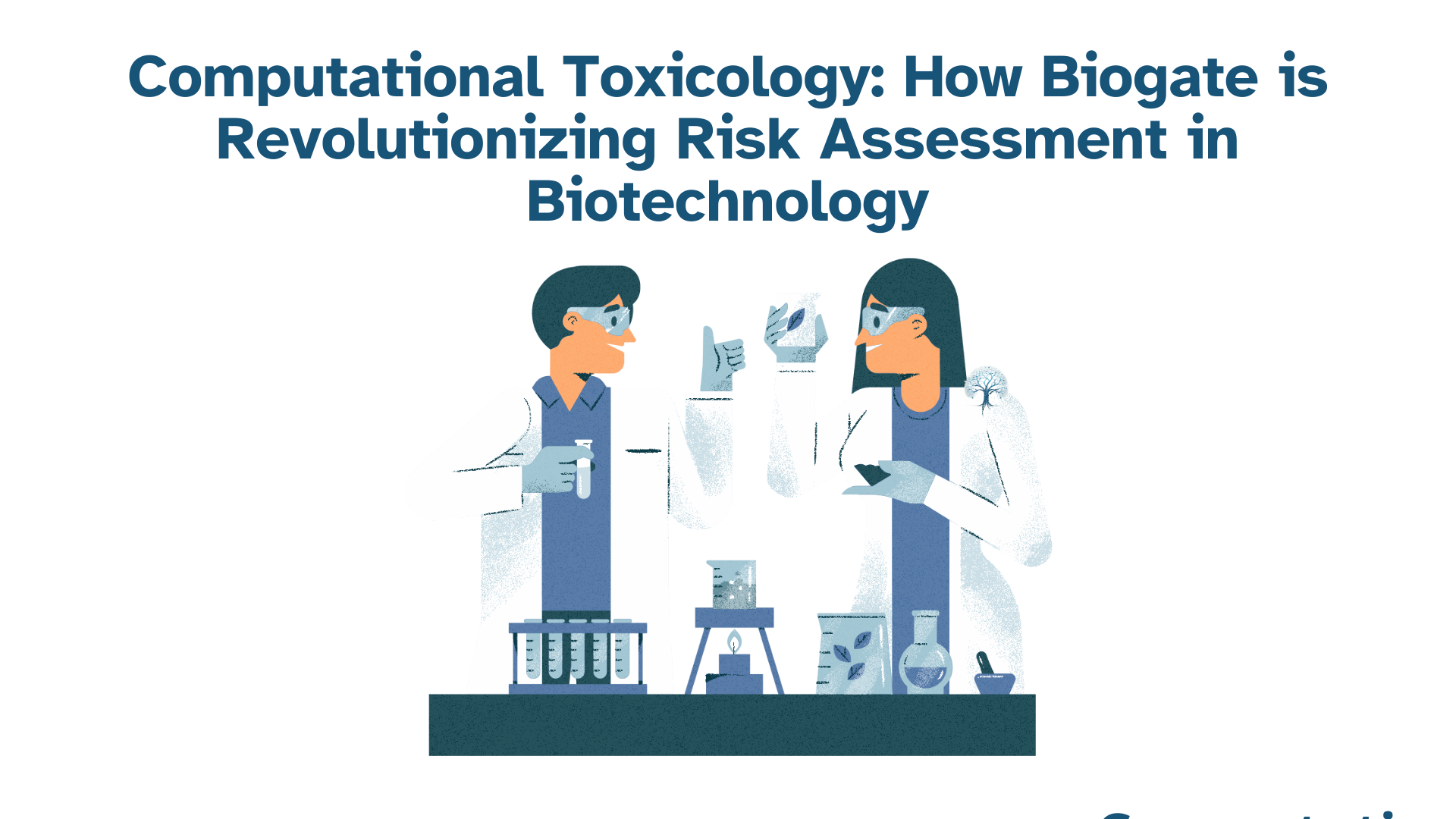Computational Toxicology: How Biogate is Revolutionizing Risk Assessment in Biotechnology

In today’s world, understanding the toxicity of chemicals and pharmaceuticals is more critical than ever. Computational toxicology has become an essential tool for predicting chemical hazards and assessing risks to human health and the environment. By combining computational models with biological data, researchers can simulate the effects of chemicals efficiently. Biogate is at the forefront of providing specialized training in this rapidly growing field, helping biotechnologists master these crucial tools.
What is Computational Toxicology?
Computational toxicology uses mathematical models, bioinformatics tools, and algorithms to predict the toxic effects of chemical compounds. Rather than relying solely on traditional laboratory methods, these techniques allow researchers to simulate how substances interact with biological systems. Biogate ensures that you acquire the skills to apply these models in the evaluation of chemical safety.
Key Applications of Computational Toxicology and Biogate’s Role
- Pharmacophore Modeling and 3D QSAR
Pharmacophore modeling helps identify the chemical features responsible for a drug’s biological activity. In 3D QSAR (Quantitative Structure-Activity Relationship), researchers use 3D molecular structures to predict a chemical's activity and toxicity. By learning these methods at Biogate, you’ll be able to predict how modifications in chemical structures affect toxicity, improving drug design and safety assessments. - High-Throughput Screening (HTS) for Toxicity
High-throughput screening (HTS) allows scientists to quickly assess a large number of compounds for potential toxicity. Computational methods analyze the massive datasets generated from HTS. Biogate offers hands-on training to help you interpret HTS data efficiently, speeding up the toxicology assessment process. - ADME and Toxicity Prediction
ADME stands for Absorption, Distribution, Metabolism, and Excretion, which are critical for determining how a drug behaves in the body. Biogate offers training on using computational tools to predict ADME profiles and toxicity risks, helping researchers assess how chemicals will interact with biological systems and whether they will have harmful effects. - Environmental Toxicology
Computational toxicology plays a key role in evaluating the environmental impact of chemicals. By simulating how pollutants and industrial chemicals affect ecosystems, researchers can predict risks to wildlife and natural resources. Biogate provides the tools and knowledge necessary for conducting such environmental risk assessments. - Human Health Risk Assessment
One of the critical applications of computational toxicology is predicting the effects of chemicals on human health. This involves evaluating exposure levels, bioaccumulation, and the risk of toxicity. Through Biogate, you can gain practical experience in using computational models to assess risks to human health from various chemicals.
Why is Computational Toxicology Important and How Does Biogate Support It?
Computational toxicology offers faster, more cost-effective, and ethically responsible alternatives to traditional toxicity testing, such as animal studies. With tools like Pharmacophore modeling, 3D QSAR, and ADME prediction, researchers can predict toxic effects and assess safety before substances reach human trials. Biogate supports you by providing in-depth training on these techniques, helping you stay ahead in biotechnology and pharmaceutical research.
Challenges and How Biogate Helps Overcome Them
The biggest challenges in computational toxicology involve data quality and the multidisciplinary nature of the field. You need knowledge in chemistry, biology, and computational modeling to succeed. Biogate bridges these gaps by offering comprehensive training, giving you the practical experience needed to confidently apply computational toxicology tools.
How Biogate Supports Learning in Computational Toxicology
At Biogate, we provide specialized courses designed to equip you with the skills necessary for computational toxicology. Our platform includes:
- Training in pharmacophore modeling and 3D QSAR, enabling you to predict how changes in chemical structures affect toxicity.
- Access to ADME and toxicity prediction tools, helping you assess drug behavior in biological systems.
- Research guidance in conducting environmental risk assessments and human health toxicity evaluations.
- Practical experience with the latest software tools such as AutoDock, GROMACS, and ADMET Predictor.
Conclusion
Computational toxicology is transforming the way we assess chemical safety, allowing for faster and more accurate predictions of toxicity risks. From pharmacophore modeling to ADME prediction, Biogate offers comprehensive training to help you excel in this vital field. Whether you're working in drug development, environmental protection, or biotechnology, Biogate provides the resources and expertise you need to succeed.